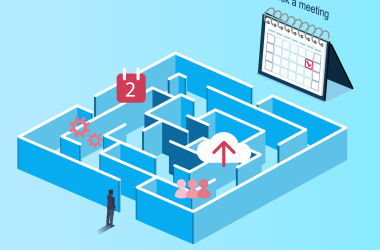Recently I had the privilege of spending time with a working group of conference team planners representing a great cross section of the UK venues and hotels sector. Firstly, a thank you to you all for your candour and openness.
So, what did I learn?
Other than the immense talent and commitment that they each displayed to the meetings sector, one of the key take-outs was a sense of disconnect in an area that has grown and massively increased in priority, namely “team well-being”.
Only weeks before, I was engaged with various meeting venue leaders where the issues of staff retention, staff absence & sickness, workloads and attraction of new talent was a big topic of conversation. As a result of these pressures many referenced their growing awareness of the need for key well-being initiatives and were actively initiating such steps.
However at the coal face, the teams were pretty much consistent in their experiences, citing having more work load on reduced head counts and little mid management investment or focus on streamlining processes. This is now holding back conference enquiry teams from focusing on the real value of their roles namely, enquiry conversion, yield optimisation and effective customer engagement. Instead, what they were seeing is retrospective actions from the leadership teams that were trying to deal with the outcomes of these work overloads (stress, fatigue, errors & low morale) with wellbeing initiatives. Yet they were blind to the time sapping attempts by middle management to reengineer broken processes in the enquiry to payment lifecycle of a meeting. The efforts were well meaning in intention but were cynically regarded by those in-house conference teams.
The call out from really motivated in-house conference teams was “help us handle the high-volume, low value tasks better, and so free us up to do what we do best. This motivates us and optimises revenue by delivering on automation”. That needs venue and hotel leadership to challenge their management teams to look at the enabling deliverables of automation, not the superficial “moving the deck chairs on the Titanic” actions i.e. working within the framework of current broken processes with fruitless tweaks and modifications.
Delivering on the wellbeing agenda should be more about balanced workloads, role empowerment and stimulation. Failure to understand this leads to the costly post event outcomes of overloaded teams that are evident in stress absenteeism levels, slow and costly recruitment on the back of employee churn, and low morale and its brand impact.
I will be sharing more of the insights I gained from these working groups with leadership teams cover coming months as this is exactly where “automation” is a friend to all (customers/ venue operators/ venue team members) – not to be siloed into just a cost cutting theme.









